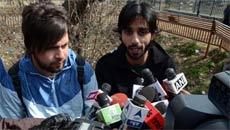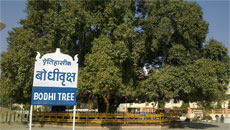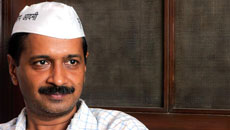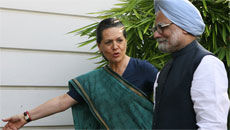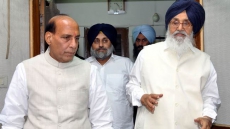Even as India is going through the last phase of a critical and intensely contested general election, which hopefully will lead to a new government in Delhi by late May, the appointment of a new army chief to succeed General Bikram Singh who retires on July 31 has become the focus of a potentially damaging controversy with serious implications for the already frayed higher defence management of the country.
Under normal circumstances the government of the day announces the new chief of an armed force about three months before the incumbent is to retire and by this norm the UPA government would have set in motion the process of selecting a new chief about six months prior to the announcement. This process has begun and it was expected that, by April-end, the name of the new army chief would have been made public to enable a smooth transition.
However, the BJP has opposed this move by the UPA government and it is understood that a letter has been written to President Pranab Mukherjee, who is the Supreme Commander of the Armed Forces, seeking a stay on the appointment and that this decision should be left to the new government. Yet past precedent indicates that during the NDA to UPA-I transition in May 2004, the Vajpayee-led government announced the appointment of then Vice Admiral Arun Prakash as the new naval chief since the incumbent was to retire in end July of that year. The political leadership of the Congress at the time, which was to form the new government, did not see this NDA decision as being untoward or objectionable.
In the current case, the appointment of the new Army Chief has a troubled history. It may be recalled that General Bikram Singh’s appointment as chief was mired in the date of birth legal tangle associated with the former incumbent - General V.K. Singh. A most undesirable controversy erupted over the selection and extreme, imprudent sectarian dimensions of favouritism were alluded to and the higher echelons of the Army went through an unsavoury phase. At the time, serious allegations were made by the Army HQ against Lt. General Dalbir Suhag, then a corps commander in the Army’s Eastern Command headed by Lt. Gen. Bikram Singh. The received wisdom was that Suhag’s prospects of being considered for the post of an army commander and later army chief were being deliberately jeopardized by Gen. V.K. Singh.
However, the UPA government followed the prevailing norm of selecting the senior-most officer at the time and General Bikram Singh took over as Army Chief in mid-2012 in an unhappy period and to his credit restored the dignity of his office and the equanimity of civil-military relations. One of his first decisions was to drop the charges against Lt. Gen. Suhag and accord him full redress thereby bringing him back into the promotion loop.
The current situation is compounded by the fact that since leaving office, General V.K. Singh has entered the political domain and has joined the BJP and is contesting the current election. If elected, he will be the first former Army Chief to enter the legislature and is expected to be an important voice in parliament. And in the current frenzied election fervour, he has also voiced his opposition to the UPA appointing the new Army Chief before demitting office.

The related linkage is that as per the current seniority list, Lt. General Suhag -- now the Vice Chief of the Army -- would be the likely successor to Gen. Bikram Singh. Given the history of the bitter V.K. Singh-Bikram Singh contestation, many observers perceive the BJP position to be tempered with this element of personal rivalry.
This background reeks of needless politicization of a sensitive appointment that has a direct bearing on national security. The retired army fraternity which had been polarized during former army chief V.K. Singh's date of birth controversy has added to the current turbulence and charges of a ‘lame-duck’ government automatically forfeiting its right to take such decisions - the appointment of a new chief - have been made in the public domain.
This is regrettable and invalid for in matters of national security, the appellation ‘lame-duck’ and hence the denuding of executive responsibility does not apply. Yes, strong views could be expressed about the manner in which the outgoing government has dealt with higher defence management but till the next prime minister and his or her cabinet are sworn in, India’s higher security lattice has to be alert and fully responsible for any exigency 24x7. The possibility - albeit low based on current indicators - of a less than clear mandate for one party or the other could also lead to a delay in the formation of a new government. The process of government formation could well slide into mid-June.
India’s nuclear weapon status only makes the imperative of a seamless higher military transition even more imperative and the top political leadership in the BJP would be well-advised to ponder over this relatively dormant issue of the appointment of the next army chief matter more objectively. The recent experience of a headless navy is instructive.
National security considerations warrant a bipartisan and consensual approach and deliberations, where warranted, ought to be outside the public domain. Again, past precedent is laudable and the P.V. Narasimha Rao-Vajpayee quiet consultation in the 1990s over the nuclear issue is illustrative.
The current Pavlovian penchant wherein major political parties when in opposition almost always ‘oppose’ the government of the day on national security matters must be avoided. Informed debates in parliament on this critical subject have been absent for well over two decades and closing ranks over the army chief issue would be a welcome start -- hopefully to a new phase in Indian political discourse over national security.


